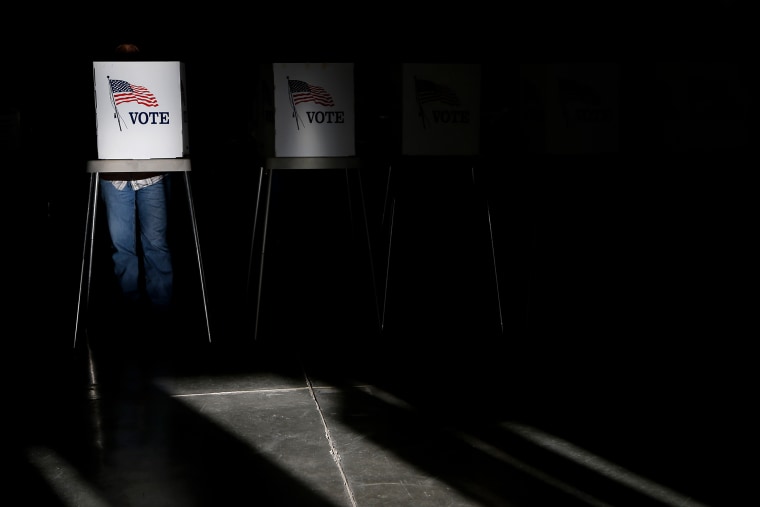In a much-discussed speech last month at a Congressional Black Caucus Foundation event, President Obama told the audience, "If you care about our legacy, realize everything we stand for is at stake. All the progress we've made is at stake in this election. My name may not be on the ballot, but our progress is on the ballot. Tolerance is on the ballot. Democracy is on the ballot."This notion that democracy itself is facing a historic test resonated, and the president has started incorporating the line into other remarks.But it's worth pausing to consider what the argument means, exactly. Why do Obama and other progressives believe democracy itself on the ballot in 2016? It's probably because Americans have arguably never seen a major-party presidential nominee as hostile towards democratic principles and institutions as Donald Trump.The dynamic is actually getting worse as it appears more likely that the GOP candidate will lose. In recent weeks, voters have seen Trump call for the imprisonment of his rival candidate and her attorneys, condemn the free press and threaten to sue news organizations he disapproves of, attack the legitimacy of the American elections process, and suggest he may not concede the outcome of the presidential race. (This followed months in which Trump praised authoritarian regimes abroad.)There is no precedent in the American tradition for a presidential hopeful to demonstrate quite this much hostility towards democratic norms -- and we haven't even gotten to Trump's calls for "poll monitoring." The Huffington Post noted yesterday that Trump "has explicitly and repeatedly warned of voter fraud -- and told his supporters to serve as poll monitors in precincts where illegal voting is most likely."
He's mentioned the issue on at least three occasions in rural or western parts of Pennsylvania, warning about the possibilities of cheating in Philadelphia. The argument has obvious racial overtones, since his audiences are almost entirely white, and Philadelphia, like most large cities, has a significant African-American population. [...][Mike] Pence, appearing on CBS "Face the Nation," also endorsed the call for poll monitoring, brushing off concerns that doing so might intimidate minority voters who would be more likely to vote for Hillary Clinton.
"People that are concerned about this election and about us preserving the one person, one vote that's at the very center of our American democracy, should become involved, should volunteer at their neighborhood polling place," Pence said. "That's how we ensure the accountability. Frankly, that's how we protect the integrity of the vote for Republicans, Democrats, Independents."And what does this mean in practical terms? The Boston Globe talked to one Trump follower in Cincinnati who vowed to heed the candidate's call."I'll look for ... well, it's called racial profiling. Mexicans. Syrians. People who can't speak American," Steve Webb, a 61-year-old carpenter, said. "I'm going to go right up behind them. I'll do everything legally. I want to see if they are accountable. I'm not going to do anything illegal. I'm going to make them a little bit nervous."Right. The goal is to identify non-white people who want to legally cast a ballot in the United States, and make them "nervous."Other Trump surrogates spent yesterday being quite explicit on this front, making the case that urban areas are hotbeds for voter fraud and election irregularities. The candidate and his allies have no proof -- real-world evidence points in the opposite direction -- but they're nevertheless convinced and they're persuading others to participate in intimidation campaigns against people of color.As Vox's Dara Lind recently explained, "It's one thing to have election monitors stationed at polling places to make sure poll workers and campaign volunteers aren't breaking election law; it's quite another to encourage groups of vigilantes to hang out at polling places in unfamiliar neighborhoods, with the stated goal of making people feel too uncomfortable to vote if they look like they shouldn't be voting.""Democracy is on the ballot"? It's hardly hyperbolic given the circumstances.
